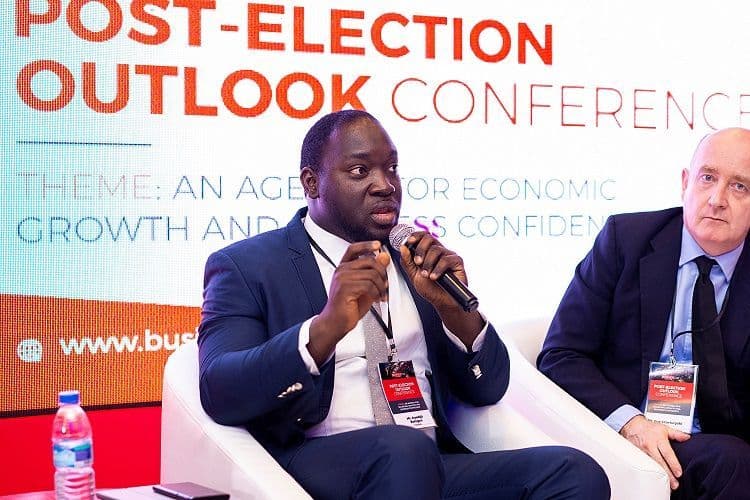Reading time:6 min read
Highlights From AFEX/ Proshare Tweet Chat on Nigeria's Commodities Market
One thing that would no doubt interest followers of our Tweet Chat with Proshare - Nigeria’s leading financial information hub - on the 17th of April 2019 about Nigeria's commodities market is our Q1 trading score card. It was perhaps the first time that the number we have recorded from trades carried out on our platform in Q1 2019 entered the public domain, becoming widely accessible public knowledge. To reiterate, in Q1 2019, AFEX recorded a total of 7,812 MT of commodities traded, valued at N773 million.
We shared some other necessary facts about our business and Nigeria's commodities market as people jumped in with their questions with the hashtags #AskAFEX and #AskProshare.
Here are some of the questions and our answers from our Tweet Chat with Proshare on Nigeria's Commodities Market.
Kindly give us an overview of Nigeria's Commodities Market so far in 2019
We started 2019 with projections of a bullish H1 for the commodities market in Nigeria. It was a projection based on the results of the 2018 Wet season and the high demand for certain commodities which were unable to match up with supply.
The start of the year kept with the trend with the uncertainty of the elections leading a lot of people to buy and store commodities, which led to an increase in demand. Logistic costs were also high in the period contributing to price increases and fluctuations.
The market has now settled into a stable price for most commodities with light fluctuations arising mostly from logistic issues, and we expect it to remain that way for a while going forward.
On the international side, the US-China trade war was one important factor that saw both countries look inwards for their commodities thereby cutting down on imports. Prices of commodities internationally therefore stayed down and the flow of commodities satisfied demand.
What has been the performance of the Commodities Exchange in 2019, how is this measured and what were the driving factors?
For Q1 2019, a total of 7,812 MT was traded on the Exchange resulting in a value of N773,111,255. We measure the performance simply by looking at the volume of commodities that are traded via our platform and market forces drive performance.
Nigeria has a lot to gain in developing a robust Commodities exchange ecosystem. How has AFEX been engaging stakeholders, regulators and the government in deepening the ecosystem?
One of the key things that the Exchange set out to do was fill in a need for information about the commodities market and commodities trading landscape in Nigeria. To do this, the Exchange has launched a lot of engagements through media partners like Proshare, BusinessDay etc.

AFEX Country Manager, Ayodeji Balogun, speaks at BusinessDay's Post-Election Outlook Conference
Our annual Code Cash Crop event as well as other events still lined up for this year have also been an avenue to discuss activities in the sector as well as our new products and initiatives. Our aim has always been to come up with simpler products and make it easier for everyone to understand the products.
We are also a part of a number of sub-committees that the SEC has set up to help develop a robust framework. This allows us engage with regulators and the government on a regular basis.
The #CodeCashCrop is a remarkable initiative by AFEX, that brings Technology and Finance to develop Agriculture. What is the update on the adoption of technology and financing to boost the commodities value chain in the country?
Technology adoption has become increasingly popular due to the untapped potential in the sector. Over the past couple of months, we have seen an increasing number of tech start up providing solutions in agriculture, targeted at attracting investment into the sector and also providing sound solutions towards increasing productivity in the sector.
We have seen an uptick in the conversations on Financial inclusion, which is a big part of the pillars of our service and which has seen us deploy tech/ digital solutions to get more smallholder farmers in our rural communities to finally access financial services.
The Regulatory environment is very key for attracting critical investments into Nigeria's commodities market. Is the current framework incentivizing investments as expected and what more can be done?
Regulators have set up or are part of a number of committees that are looking to build on the current framework for the commodities market in Nigeria. The focus is on developing rules to encourage investments so there is a lot of positive activity from that end.
Who are the major players on the Commodities Exchange and how has the interaction been within the Agriculture Value Chain?
The major players on the Exchange are Producers, who for us are mostly smallholder farmers; buyers or processors, who need access to quality assured commodities of specific quantity; and investors or financiers looking to expand their portfolios.
These three players all have value to offer to one another within the agriculture value chain, but the interaction is often fragmented with no place for the three to meet. AFEX is solving that problem and in that way maximizing the returns for these three players in the agriculture value chain.
What is AFEX doing to increase the commodities traded on the exchange as well as its participants?
To increase the commodities traded on the exchange, AFEX is staying focused on farmer engagement; using our outreach structure to get more farmers to take advantage of the Exchange’s offerings from input financing to storage and grading services.
The Exchange is also making a lot of investment in technology to help automate some of our processes and make for easier data capturing and analysis.
For participants, the Exchange is creating and launching innovative new products that will make investing in commodities accessible for all investors, and we are also lining up trainings and other avenues of interaction that will make it easier for everyone to understand the products.
What is the process of participation for individuals and businesses on the Exchange?
Individuals or businesses interested in participating on the Exchange can either visit our website and hit the trade button
Or
They can send a mail to membership@afexnigeria.com stating their intention to be members and we will guide them appropriately from there
What is your outlook for 2019 and what more should the investing community expect from AFEX this year?
2019 promises to be a productive year. We expect yields of small holder farmers to increase 1.5 x and returns on investment of 25% and above. On the exchange, we expect to see an increase in retail participation as well as the introduction of key products targeted at increasing participation of key stakeholders
What should investors look out for when investing in Nigeria's commodities market?
Like in most other investment undertakings investors need to monitor the trends in the market like price movements, external factors that can influence demand and supply e.g weather conditions, and they should also consider trends internationally.
This drives our publication of prices on our website and also the weekly and monthly reports that we send to members with analysis of the market both locally and internationally.
